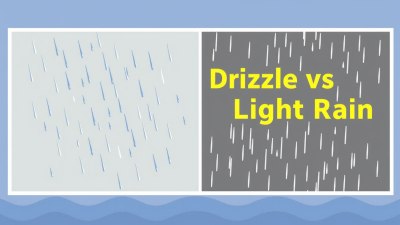Why Heat Waves Turn Even the Nicest People Into Irritable Gremlins
Explore how heat waves affect mood and behavior, turning friendly faces into irritable gremlins.

Heat waves are more than just a weather phenomenon; they can transform the temperament of even the kindest individuals into irritable versions of themselves. During extreme heat, numerous factors ranging from physiological to psychological come into play, pushing our limits of endurance and patience.
The Science of Heat and Mood
Research has demonstrated a direct correlation between increased temperatures and negative mood changes. As the mercury rises, so do levels of irritability and aggression. Physiological responses such as increased heart rate and sweating can lead to discomfort, anxiety, and fatigue, pushing individuals toward mood swings that can turn sweet dispositions sour.
Physical Effects of Heat
The human body is not designed to function optimally in extreme conditions. As temperatures soar, people tend to become dehydrated, leading to a lack of focus and increased levels of fatigue. This physical discomfort often translates into irritability; groggy individuals respond more negatively to stressors, both minor and significant. In fact, studies show that higher temperatures can significantly reduce cognitive functioning, impairing our ability to think clearly or rationally.
Environmental Factors
Heat waves often come with accompanying environmental stressors. For example, urban areas experience the "urban heat island" effect, where concrete absorbs and retains heat more than natural landscapes, leading to a situation where urban dwellers suffer even more intensely. This discomfort is intensified by increased noise levels from air conditioning units working overtime, creating a sense of chaos that can further exacerbate irritability. What might seem like harmless background noise can increase stress levels, compounding the effects of oppressive heat.
Social Dynamics and Heat
As heat waves strike, social interactions may also become strained due to this combination of discomfort and irritability. People who typically engage in friendly banter may find themselves snapping at one another over minor inconveniences simply because they can’t handle the heat. Contributing to this dynamic is the fact that individuals are often confined to small spaces, such as homes or office buildings, where tension can accumulate. The inability to escape the oppressive heat can lead to conflict among family members, roommates, or coworkers as tempers flare in the hangar of stifling conditions.
Strategies for Coping
To keep our cool in the heat, it’s essential to develop strategies for coping. Ensuring proper hydration is one of the most crucial self-care measures. Drinking plenty of water helps mitigate dehydration, which can alleviate some of the physical discomfort associated with high temperatures. Moreover, finding ways to cool down, whether through air conditioning, fans, or even cool baths, can help minimize irritability. Making an effort to engage in light physical activities during cooler parts of the day can also create a sense of well-being, allowing for emotional outlets that can stave off negative responses.
Mindfulness and Perspective
Practicing mindfulness becomes increasingly essential during heat waves. Taking a moment to breathe deeply and center oneself can help counter intense emotional reactions. Perspective-shifting techniques can also be effective; recognizing that everyone is feeling the effects of extreme temperatures can foster empathy and understanding in social interactions. When one person feels irritable, offering patience, a smile, or a verbal acknowledgment can diffuse heat-induced tensions.
Seasonal Affective Disorder in Summer?
Interestingly, heat can also trigger responses similar to seasonal affective disorder but in a completely different season. While winter's gloom can lead to depression, seeing sunlight and hot temperatures might enhance feelings of being overwhelmed. In the long run, the body's natural circadian rhythms can be disrupted by extreme heat, which might contribute to mood swings. Keeping habits regular—maintaining a sleep schedule and not overextending oneself during the hottest periods—can alleviate some negative emotional responses commonly felt during intense heat.
The Role of Community Support
Communities can come together during these challenging times, creating support networks that help alleviate some of the emotional burdens of heat waves. Organizing community events in cooler environments, providing resources for those struggling with heat, and attempting to engage in light-hearted gatherings can promote social cohesion and lessen the feeling of isolation that can accompany extreme temperatures. Having a support system can act as a buffer against the irritability that heat waves can bring.
The Bottom Line
In summary, heat waves indeed have a profound impact on human mood and behavior, turning even the gentlest souls into irritable gremlins. Understanding the science behind this phenomenon can help us manage our reactions and foster patience and empathy amongst ourselves and others. By employing coping strategies, adopting a mindful approach, and seeking support from our communities, we can navigate the challenges posed by extreme heat while maintaining our equanimity. So the next time the sun blares down relentlessly, remember—it’s not just the temperature; it’s the heat wave environment affecting us all.











